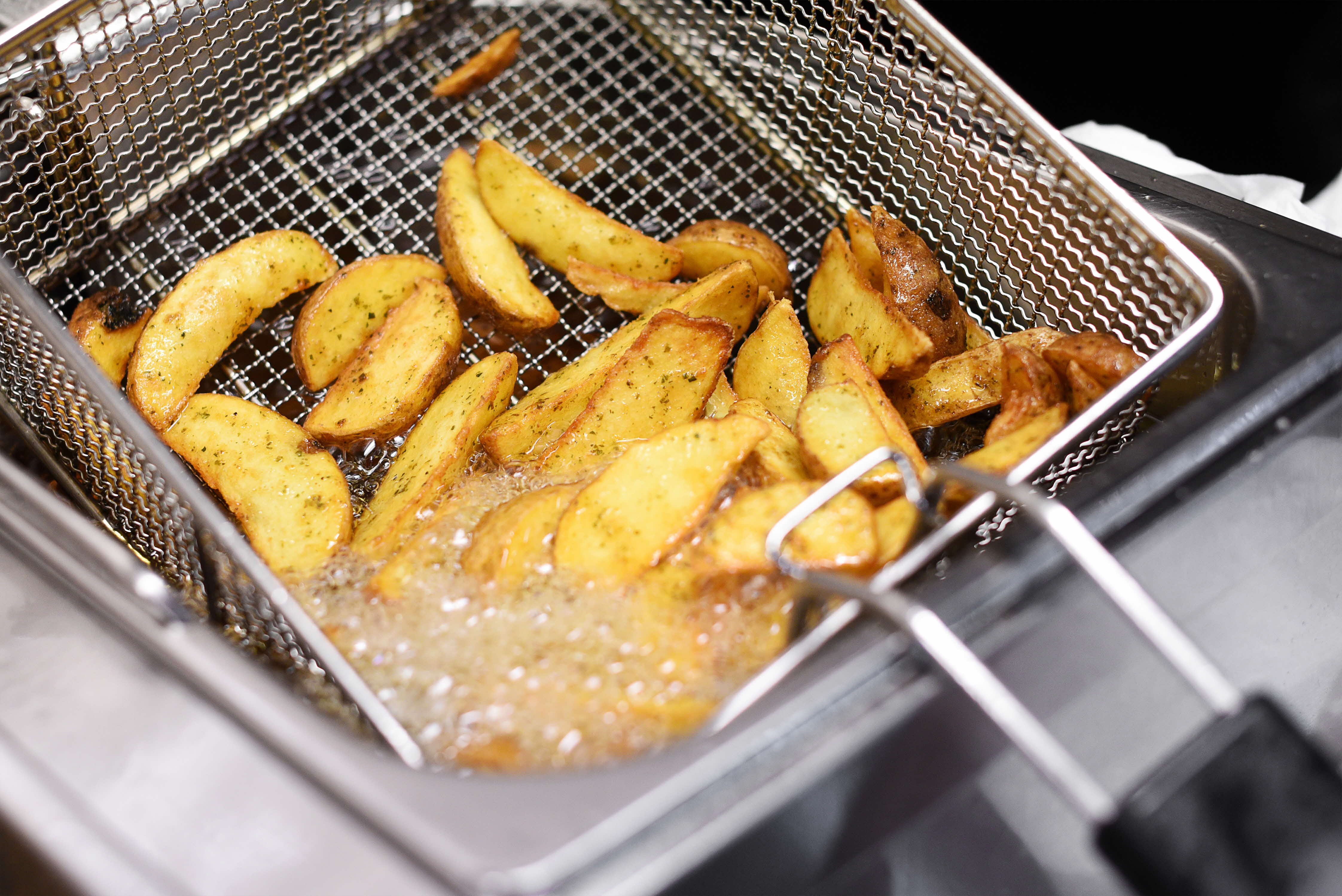
Technological advancements in the agri-food industry, like the Recirculatory Aquaculture System (above), could revolutionise the way we farm and produce food.
The following is a transcript of the speech by Minister for Sustainability and the Environment Grace Fu at the Asia-Pacific Agri-Food Innovation Summit on 26 October 2022.
Distinguished guests
Ladies and gentlemen
Introduction
It is my pleasure to join you at Asia-Pacific Agri-Food Innovation Summit. This annual event brings together stakeholders across the global agri-food industry, all working towards a common goal – a secure, sustainable agri-food system. To our international delegates – welcome to Singapore. I am glad that we can host you in person in Singapore again, and I hope you will catch up with new acquaintances and “zoom”-mates while you are here!
Need for sustainable global food system
Since we last met, the global food system has experienced a turbulent and challenging time. The impact of climate change is felt on food production. Prolonged dry spell and heatwaves have affected crop yield and we see food production plummeting across all continents. Intense rain, deluge and floods wash away livestock and damage food stock, again in many parts of the world.
The war in Ukraine has disrupted supply of feedstock and grains to central Asia, Europe and Africa. Its impact is also felt in Asia with prices escalating in wheat, corn and other feedstock. The disruption in supply and the resultant global shortage has caused hunger and hardship in many countries.
The energy crisis in Europe has also caused the price of fertilisers to rise, making it out of reach to some farmers. The higher cost of transportation also resulted in price inflation.
In response to these shortages and inflation, we saw rising food protectionism, as countries imposed export restrictions to safeguard supplies for domestic consumption. Other interventions, such as price caps and quotas, were applied for short-term relief but with long term consequences to the industry.
Singapore too, has felt the impact of such climatic shifts. Supply of chicken was impacted by an export ban in Malaysia. Prolonged heavy rains led to a decrease in vegetable supply from the region which drove up the prices of vegetables in Singapore.
Singapore’s 30 by 30 goal
Singapore is vulnerable to supply shocks and disruptions as we import more than 90 per cent of our food. For greater food resilience, we have set a “30 by 30” goal – to be able to produce 30 per cent of our nutritional needs by 2030. And to achieve this with less than 1 per cent of land set aside for farming. This requires us to grow more with less, in a highly productive, climate-resilient, and resource-efficient way.
Technology and Innovation in our long-term planning
Long-term strategic planning is critical in achieving our goal. In Singapore, we are re-developing the Lim Chu Kang area, where many of our farms are currently located. Our vision is to transform it into a vibrant, high-tech agri-food cluster. Last year, we conducted engagement sessions with various stakeholders ranging from farmers, educators, and nature groups. A sustainable agri-food zone was one of the main ideas proposed.
We are appointing a multi-disciplinary team to develop the master plan for Lim Chu Kang. Sustainability elements will be incorporated in the plan. For resource efficiency, common facilities for agri-production, such as wastewater and waste management, distribution and logistics, could be sited within Lim Chu Kang to be shared between farms. Circularity will be part of the planning framework, to encourage the by-products of farms to be used as inputs for other parts of the agri-food ecosystem. We will announce the award of the design consultancy tender next month*.
A thriving industry requires a workforce with the right skills and talents. We are partnering institutes of higher learning and the industry to build a pipeline of talent for the sector and upskill our existing workforce. We will focus on skills in agriculture and aquaculture sciences, engineering, and info-comm technology. For example, Republic Polytechnic offers the Diploma in Environmental & Marine Science, which trains students to develop sustainable environmental and aquaculture solutions to address challenges posed by climate change, including reduced agricultural and seafood yields and disease outbreaks.
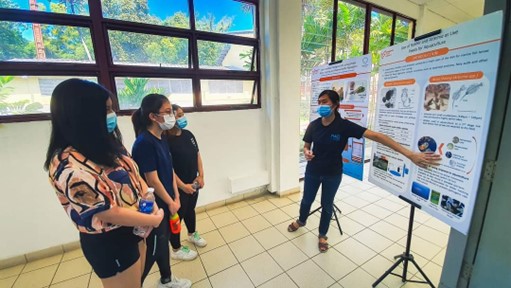
Engaging young minds early: James Cook University Singapore students attend a learning journey session at MAC
Technology and innovation are key enablers as we journey towards our goal. Previous agricultural revolutions tapped on the domestication of animals, mechanisation, and the use of fertiliser to feed the world’s population. We are now at the cusp of the fourth agricultural revolution. With climate change posing challenges to the production of food, the industry needs to adopt technology to overcome the challenges and produce more, in a sustainable manner.
Climatic controlled, vertical farming is one such path for land-scarce Singapore. This year, we saw the soft launch of GroGrace, a proof-of-concept farm arising from a public-private partnership between Singapore and the Netherlands. Its multi-layer farm structure optimises limited space to grow more. Food is also produced in a sustainable and climate-resilient manner. GroGrace uses a dry hydroponics system, where plants are planted above the water. This results in stronger root development, a dryer micro-climate around the leaves, and stressless growth for the plants. This also enables the farm to grow a wide range of fresh produce all year round.
By using Internet of Things automation systems and rainwater collection for irrigation and fertigation, it can potentially produce 33 tonnes of fresh, produce annually, within a 750sq metres compact facility.
Supporting industry transformation
Singapore has been actively supporting the adoption of such technology and innovations in our agri-food industry. Our goal is to increase the resilience and productivity of our farming sector, with better yield and business continuity for our farmers.
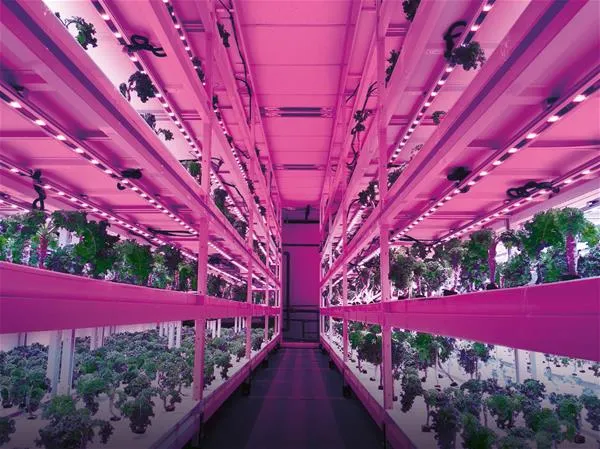
Sustenir Agriculture, an urban farming company that successfully developed in-house innovations with funding support from SFA. Located in an industrial building, Sustenir grows temperate produce such as Tuscan kale, arugula, cherry tomatoes, and strawberries within a tightly controlled environment that ensures optimal plant growth and year-round harvests. Image: Sustenir
To help more farmers, we have expanded our Agri-food Cluster Transformation (ACT) Fund earlier this year to cover more types of food and technology, to enhance their capability, capacity, and sustainability. Thus far, $3.8 million of the $60 million ACT Fund has been committed to fund 13 ACT projects.
We are encouraging innovation through research projects in the areas of sustainable urban food production, future foods, and food safety science and innovation. This is done through the $144 million Singapore Food Story R&D programme. We will announce the award of the second grant call of Theme 1 tomorrow. We intend to fund more on the sustainability front through the R&D programme, and will share more details later today.
In 2020, in response to the supply disruption caused by the COVID pandemic, we launched the 30X30 Express grant to help farms fast track their production. Genesis One Tech Farm (GoFarm), is one recipient which has started to reap fruit by tapping on the power of technology to enhance its productivity and sustainability.
This vertical farm operates 6.8 metre high, 14-tier cultivation racks which can produce five to six hundred kilogrammes of fresh vegetables daily in an area smaller than 1,000 square metres. Through the adoption of nutrient film technology and an irrigation system which involves the re-circulation of water-based nutrients through the system, the farm is able to use 95 per cent less water than conventional deep water-based hydroponic farming.
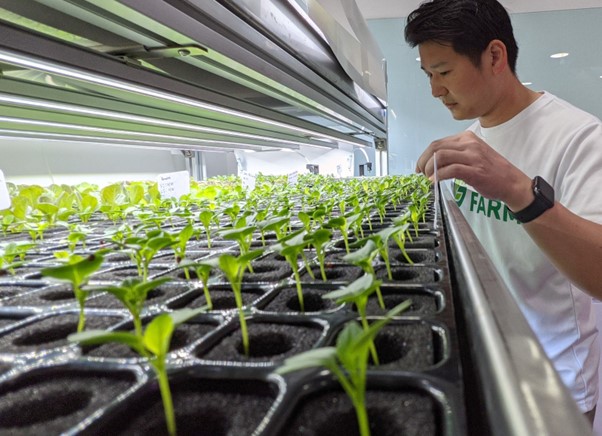
GoFarm, a recipient of SFA’s 30X30 Express Grant, leverages technology to enhance its productivity and sustainability. Image: GoFarm
The use of fifth-generation LED lights also reduces the farm’s electricity consumption by 70 per cent. The farm utilises a specially designed air-conditioning and mechanical ventilation system, allowing for a faster growth cycle of 28 to 35 days from seed to harvest. To further increase efficiency, GoFarm is exploring automated packing and seeding machines.
I look forward to seeing more innovative projects like GoFarm contributing to Singapore’s food security. At the recent Singapore Week of Innovation and Technology, Deputy Prime Minister Heng Swee Keat announced The Liveability Challenge. The Liveability Challenge is a global crowdsourcing platform that accelerates the launch of innovative solutions to combat urban challenges in cities.
Today, I am pleased to announce that the Singapore Food Agency (SFA) and Temasek are co-presenting the Food Grand Challenge as part of the 2023 iteration of The Liveability Challenge.
The Food Grand Challenge will focus on supporting disruptive circular urban agriculture and aquaculture solutions, as well as alternative protein innovations. The winning solution will receive a grant of S$1 million dollars to pilot its technology and advance towards commercialisation in Singapore.
Balancing innovation and food safety
As we set our sights on becoming a food innovation hub, food safety is an essential element. Food regulatory ecosystems need to keep pace with innovations, and this is best achieved when we share knowledge and experiences. Just last week, Singapore hosted the Global Summit on Regulatory Science, an annual conference organised by the Global Coalition for Regulatory Science Research. Participants from across five continents gathered to discuss how regulatory science could address food safety concerns associated with the advances in nanotechnology, as well as their applications in food production.
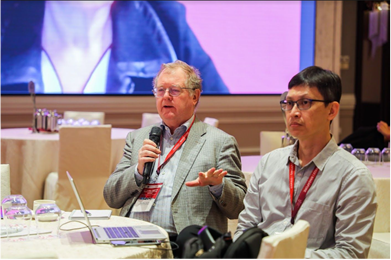
A participant at the Global Summit on Regulatory Science 2022, an annual conference aimed at enhancing the translation of science into regulatory applications globally
Novel food is another area that has much potential to supplement food security. Novel food production utilises less land, smaller carbon footprint compared to conventional animal proteins. Innovations in this area are progressing rapidly. To enable innovations while regulating the safety of such foods, the Singapore Food Agency has in place the novel food regulatory framework. The framework facilitates companies producing novel food products to conduct safety assessments of their products for SFA’s review before they are permitted for sale. The guidance provided to companies is regularly updated with additional details on food safety information.
Two years ago, Singapore became the first regulatory authority to allow cultured meat to be sold. Just recently, we approved for sale food products containing Solein, a microbial protein. Solein is produced without the rearing of animals or the use of agriculture, and has the potential to complement existing proteins. It is produced by Finnish company Solar Foods with a microorganism. We will continue to work closely with the industry to balance food safety and innovation.
Conclusion
Achieving a secure and sustainable agri-food system in Asia will not happen overnight. It requires holistic planning, strong support, and deep collaboration from stakeholders including governments, farmers, and researchers. With climate change happening, we must act now. I hope that we will continue working together and tapping on one another’s strengths and resources.
International events like this provide a platform for the exchange of ideas, learn about the latest agri-food technologies and innovations, and build networks to develop a vibrant and sustainable food production eco-system. I wish all participants a meaningful and fruitful time, and I hope to see innovative and sustainable solutions arise from this event.
Thank you.
*The award of the Lim Chu Kang design consultancy tender was announced on 9 November 2022.


